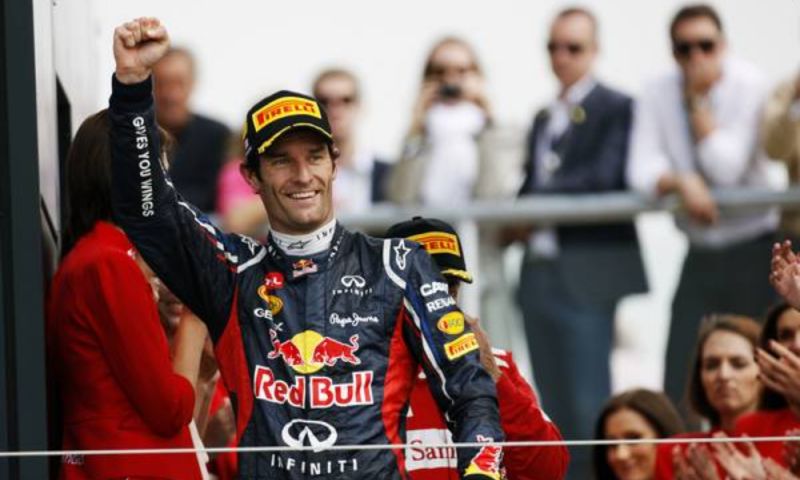F1 News

GPBlog's Top 50 drivers in 50 days - #48 - Mark Webber
Welcome once again to GPBlog.com’s top 50 F1 drivers of all time. We’re revealing them one at a time in the countdown to the start of the 2020 season. It’s now just 48 days away, and if you missed yesterday’s piece of Ricardo Rodriguez, click here. Today we’ll talk about a favourite from recent times, Mark Webber.
Webber’s book, Aussie Grit, sums up the type of driver he was. Perhaps not the most talented or refined of drivers, Webber had a true pace that made him almost unstoppable on his day and a determination matched by few.
The Australian began karting at the relatively late age of 14 and moved to Europe in 1995 to try and take his career to the next level.
Battling sponsor troubles, Webber managed to get a drive in sportscars with Mercedes, but soon after he started attracting F1 teams, with Arrows and Benetton both offering him test driver roles.
Minardi were the first team to take Webber on full time, making his debut in 2002. He impressed on his first start in Australia, finishing fifth and scoring his team’s first points for almost three years.
After showing his pace all season, Jaguar came calling and Webber made the move to the team that became Red Bull Racing.
Determined to move towards the front of the grid, he made the move to Williams for 2005, taking more regular points finishes, including a maiden podium in Monaco.
2006 was more difficult, scoring a meagre seven points, leading to Webber joining his fourth team in six years, as he joined Red Bull.
Things started off slowly, but after two seasons in the midfield, 2009 was a different story.
Regular podium finishes and two wins in Germany and Brazil yielded a fourth placed finish in the drivers’ standings.
The next year was an opportunity for Webber to have a go at the world title and consecutive victories in Spain and Monaco had him in a good position halfway through the season.
The infamous radio message “not bad for a number two driver,” at Silverstone signalled another victory and he looked favourite for the title. Another win in Belgium put him top of standings, a position he held with just three rounds to go.
A crash with Nico Rosberg in Korea gave Fernando Alonso the lead in the title race, but neither of them would end up taking the crown.
Both drivers got stuck behind Vitaly Petrov at the final race in Abu Dhabi, allowing Sebastian Vettel to take the title, starting his era of dominance.
Despite scoring more points the following year, Vettel was already on a different level and Webber would only win three more times in F1, retiring at the end of the 2013 season.
The Aussie certainly showed plenty of grit in his 215 race F1 career and since leaving the sport he’s had success in endurance racing, winning the WEC title in 2015, finishing second in Le Mans.
Webber was one of the toughest competitors in F1 in recent times. Perhaps he didn’t get the success his efforts deserved in F1, but the popular man from down under is well-loved in Formula One.